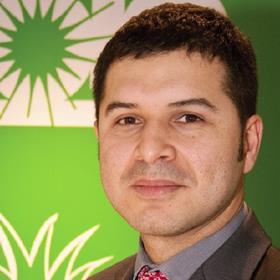
Roberto Vega, Dole Food Company’s director of sustainability, discovered that he needed to do more than just run numbers while working with the Organics department.
You first joined Dole Food Company as a financial analyst in 1998. After 14 years with the company what have you learned and enjoyed most?
RV: I joined Dole Fresh Fruit International’s Latin America headquarters and was given the responsibility of managing the Strategic Business Analysis department. Our role included supporting the financial strategy of departments such as the Organic department.
Taking advantage of a personal voyage, I decided to attend Biofach in Nuremberg, the biggest organic fair worldwide. It was a very interesting event and I immediately felt captured by this trend.Some months later the head of the Organic department offered me the opportunity of managing the finance and logistics of the Latin American programme.
What was it that made you decide to do a diploma in sustainable development?
RV: It was here that I realised running numbers was not enough for me, I needed something else, something I could ‘feel’ and where I could use the experience of my former roles. I enrolled for the Sustainable Management Program at INCAE Business School `Alajuela, Costa Rica`, which I found extremely interesting.
My background in finance and international business, and experience in agriculture compounded an interesting platform to make the shift to sustainability. My experience in the farms where I was involved in developing communities projects with my HR and environmental affairs team, the passage through the Organic department, and my respect for life and nature, also helped.
Why do you think it is important for fresh produce companies and the industry as a whole to incorporate sustainability and environmental issues into their business structure in the future?
RV: The food industry has some very direct and immediate impacts on people and nature, our most important assets. We grow products using the natural resources that life has lent us – land, air, water – and we use people to help us plant, care and harvest these products. Behaving responsibly with both ensures the possibility of keeping producing in the long run. If you protect your natural resources – the soil, for instance – you can avoid the loss of nutrients and ensure higher productivity. It is a win-win situation for everybody.
How can companies in less developed markets make effective investments in this area?
RV: Investing in sustainability can be as simple as training your people in driving techniques to reduce fuel consumption, or installing automatic on-off devices for your lights – you do not need big investments in order to be sustainable.
Not only this, but it pays off. There are a lot of initiatives worldwide looking for potential opportunities to test new irrigation systems, produce biogas, promote responsible farming, and so on. Public-private partnerships are also a very interesting opportunity for small companies in less developed countries.
What tips would you give smaller companies that are interested in making their business more sustainable but do not know where to start?
RV: Being sustainable does not mean installing solar panels or wind turbines. It all starts with analysing the basics.What am I doing and why? Is there a better and more efficient way to do it? Any action, no matter how big or small, has an impact.The first task is to understand your processes; only then can you work on alternatives to be more efficient and responsible.



